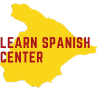Do you want to learn how to properly conjugate the verb ‘conocer’ in Spanish? Look no further!
In this article, we will guide you through the regular conjugation of ‘conocer’ in the present, past, and future tenses. We will also explore any irregular conjugations you need to be aware of.
By the end of this article, you will have a solid understanding of how to use ‘conocer’ correctly in your Spanish conversations.
So, let’s dive in and expand our knowledge together!
Key Takeaways
- Conjugating the verb ‘conocer’ in Spanish is essential for effective communication.
- Common phrases and expressions with ‘conocer’ include: ‘Conozco a María’ (I know Maria), ‘¿Conoces a Juan?’ (Do you know Juan?), ‘Quiero conocer nuevos lugares’ (I want to explore new places), ‘Es un placer conocerte’ (It’s a pleasure to meet you).
- The present tense conjugation of conocer is: Yo – conozco, Tú – conoces, Él/Ella/Usted – conoce, Nosotros/Nosotras – conocemos, Ellos/Ellas/Ustedes – conocen.
- The past tense of conocer is formed using the past participle ‘conocido’ and the auxiliary verb ‘haber’. The future tense conjugation of conocer is: Yo – conoceré, Tú – conocerás, Él/Ella/Usted – conocerá, Nosotros/Nosotras – conoceremos, Vosotros/Vosotras – conoceréis, Ellos/Ellas/Ustedes – conocerán.
Regular Conjugation of Conocer
Do you know how to conjugate ‘conocer’ correctly? Conjugating the verb ‘conocer’ in Spanish is essential for effective communication.
Here are some common phrases and expressions with ‘conocer’ that will help you in everyday conversations:
- ‘Conozco a María’ – I know Maria.
- ‘¿Conoces a Juan?’ – Do you know Juan?
- ‘Quiero conocer nuevos lugares’ – I want to explore new places.
- ‘Es un placer conocerte’ – It’s a pleasure to meet you.
To master the conjugation of ‘conocer’ quickly and efficiently, remember these tips:
- Learn the present tense forms: conozco, conoces, conoce, conocemos, conocéis, conocen.
- Practice using conocer in different contexts to reinforce your understanding.
- Use flashcards or online resources to practice conjugating conocer regularly.
- Pay attention to the stem change in the third person singular and plural forms.
Conjugating Conocer in the Present Tense
You should practice conjugating conocer regularly so that you can confidently express yourself in Spanish. Conocer, meaning "to know" or "to be familiar with," is an essential verb in everyday conversation. By mastering its conjugation in the present tense, you will be able to ask questions and express your knowledge about people, places, and things. Here is a table to help you understand the conjugation of conocer in the present tense:
| Pronoun | Conjugation |
|---|---|
| Yo | conozco |
| Tú | conoces |
| Él/Ella/Usted | conoce |
| Nosotros/Nosotras | conocemos |
| Ellos/Ellas/Ustedes | conocen |
Now that you know how to conjugate conocer, you can use it to ask questions and form common phrases in the present tense. For example:
- ¿Conoces a María? (Do you know María?)
- Conozco la ciudad muy bien. (I know the city very well.)
With practice, conjugating conocer will become second nature, allowing you to confidently communicate in Spanish.
Conocer Conjugation in the Past Tense
Have you ever known someone famous personally? If you have, then you might want to talk about your experience with others in the past tense.
In Spanish, to form the past tense of conocer, you need to use the past participle. The past participle of conocer is ‘conocido.’
To conjugate conocer in the past tense, you’d use the auxiliary verb ‘haber’ followed by the past participle. For example, ‘he conocido’ means ‘I have known.’
It’s important to remember that the past participle doesn’t change based on the subject. However, when conjugating conocer in the past tense, it’s common to make mistakes.
One common mistake is forgetting to use the auxiliary verb ‘haber.’ Another mistake is using the incorrect form of the past participle.
Conocer Conjugation in the Future Tense
Will you meet new people when you travel to Spain, or will you stick with the ones you already know? When using the verb ‘conocer’ in future tense conversations, it’s important to understand its conjugation. In the future tense, the conjugation of ‘conocer’ is as follows:
- ‘yo conoceré’ (I will meet/know)
- ‘tú conocerás’ (you will meet/know)
- ‘él/ella/usted conocerá’ (he/she/you formal will meet/know)
- ‘nosotros/nosotras conoceremos’ (we will meet/know)
- ‘vosotros/vosotras conoceréis’ (you all will meet/know)
- ‘ellos/ellas/ustedes conocerán’ (they/you all will meet/know).
To express future plans or intentions with ‘conocer,’ you can use common phrases such as:
- ‘Voy a conocer’ (I am going to meet/know)
- ‘Espero conocer’ (I hope to meet/know)
- ‘Quiero conocer’ (I want to meet/know).
These phrases allow you to express your desire to meet new people in the future. So, whether you choose to meet new people or stick with the ones you already know in Spain, understanding how to use ‘conocer’ in future tense conversations will be essential.
Irregular Conjugations of Conocer
Your friend’s knowledge of irregular conjugations of conocer is impressive, but their understanding of when to use them needs improvement. To help you navigate this topic, here are some common phrases using the verb conocer:
- ‘Conozco a María’ – I know María.
- ‘¿Conoces este lugar?’ – Do you know this place?
- ‘Ella conoce a mi hermano’ – She knows my brother.
- ‘Quiero conocer el mundo’ – I want to explore the world.
Now, let’s discuss some tips to remember the irregular conjugations of conocer:
- The first-person singular form, ‘conozco,’ is irregular in all tenses.
- The third-person singular form, ‘conoce,’ also has an irregular stem change from ‘c’ to ‘z.’
- The rest of the conjugations follow the regular pattern for -er verbs.
- Practice using these irregular forms in different sentences to reinforce your understanding.
Frequently Asked Questions
How Do You Conjugate "Conocer" in the Conditional Tense?
To conjugate ‘conocer’ in the conditional tense, you would use the following forms: conocería, conocerías, conocería, conoceríamos, conoceríais, conocerían. The conditional tense can be used with other verbs to express hypothetical situations or polite requests.
Can "Conocer" Be Used Reflexively?
Yes, ‘conocer’ can be used reflexively. To form the reflexive form, add the reflexive pronoun ‘se’ before the verb: ‘me conozco, te conoces, se conoce, nos conocemos, os conocéis, se conocen’.
Are There Any Stem-Changing Verbs Related to "Conocer"?
Are there any other verbs that undergo stem changes like ‘conocer’? Yes, there are. In the conditional tense, ‘conocer’ is conjugated as ‘conocerías’. Stem-changing verbs are common in Spanish and add an interesting twist to conjugation.
Do All Forms of "Conocer" Have an Accent Mark?
All forms of ‘conocer’ do not have an accent mark. It is important to understand the different uses of this verb in everyday conversations and avoid common mistakes when conjugating it in different tenses.
What Is the Imperative Form of "Conocer"?
To use the command form of ‘conocer’ in different contexts, simply use the imperative form ‘conoce’ when addressing one person, or ‘conoced’ when addressing a group. Some common phrases include "¡Conoce nuevos lugares!" (Explore new places!) or "¡Conoced a mi familia!" (Meet my family!)
Conclusion
In conclusion, mastering the conjugation of the verb conocer is essential for anyone learning Spanish. By understanding its regular and irregular forms, as well as its usage in the present, past, and future tenses, one can effectively communicate and connect with Spanish speakers.
As the saying goes, ‘Conocer es poder’ (To know is power), and by honing our understanding of this verb, we can unlock a world of possibilities in the Spanish language.






